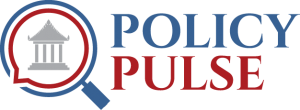Latest events
- Date: Thursday, 27 April 2023
- Time: 8:00 am > 5:00 pm
- Attending: 0
- Location: Siem Reap Province
Background
The Royal Government of Cambodia aims to improve public service delivery to ensure that people, including vulnerable and marginalized groups, have equal access to public services. Some achievements have been proven. For instance, more than 97% of children enrolled in primary school in 2017, 86.4% of the Cambodian population had access to electricity in 2020, and 80% of people in rural areas have access to clean water and sanitation in 2022.
However, this effort was disrupted by the COVID-19 pandemic. The country was briefly closed, and travel restrictions were put into place both internationally and in-country. As a result, Cambodian populations, including vulnerable and marginalized groups, were adversely impacted.
For instance, some vulnerable groups, especially persons with disabilities, encountered the hardship of accessing and adapting to changes in how public service is provided. The preliminary findings by the National University of Management’s Research Center showed that students with disabilities faced challenges in studying due to the changing study environment and lack of special support.
Vulnerable groups were also emotionally stressed during the COVID-19 pandemic. COVID-19 increased people’s demand for water, especially women who need water for cooking and cleaning (including handwashing), resulting in water stress. In addition, children also encountered emotional stress and anxiety. A study by Komar Rikreay Association found that 60% and 40% of children interviewed felt unhappier and hopeless, respectively, compared to their feeling before COVID-19.
COVID-19 also made it hard for vulnerable groups to sustain their livelihood due to their limited ability to adapt to the new circumstances. A study by My Village Organization on the impact of COVID-19 on indigenous people found that COVID-19 impacted the livelihood of the indigenous people in Stung Treng province because they lost access to markets to sell their products. The income loss also made it harder for those living under the poverty line, as their daily earning was inadequate to afford food.
To address the immediate impacts of COVID-19 and ensure that the poorest people are not left behind, the government has used its existing mechanism, the Identification for Poor Household (ID Poor), to support the most impoverished people to access necessary services such as health, cash transfer, and other social services. The ID Poor program has covered not only the poorest but also different types of vulnerable workers, such as workers in the tourism sector and returning migrant workers, to receive cash and in-kind support. By 2022, more than 700,000 poorest people in Cambodia have received ID Poor cards to access the services. In dealing with people’s economic stress during COVID-19, the government has also implemented several policies, such as the Strategic Framework and Programmes for Economic Recovery, and the Private Sector’s Pension Scheme, to strengthen the country’s resilience to future crises.
To enhance resilience to future crises and achieve better outcomes, the government needs reliable data and inclusive discussions to make decisions. Accordingly, the Ponlok Chomnes’ partners and other research institutions have conducted various pieces of research on the impact of COVID-19 on vulnerable groups to explore issues, challenges, and possible recommendations to improve services to vulnerable groups.
Drawing on insights from recent studies by the Ponlok Chomnes partners and knowledge of key policy actors, the Ponlok Chomnes Knowledge Exchange and Dialogue (KED) will be a platform for knowledge producers to showcase their findings, discuss, exchange knowledge, and network with knowledge users by revisiting the governments’ efforts and providing recommendations to enhance public services sector for vulnerable groups in Cambodia.
Objectives of Ponlok Chomnes Knowledge Exchange and Dialogue (KED)
The objectives of the Ponlok Chomnes Knowledge Exchange and Dialogue are to:
- Communicate research and data that responds to policy needs to better inform Cambodia’s public services responding to the needs of vulnerable groups;
- Promote the knowledge exchange and discussion among stakeholders at the national and provincial levels; and
- Create an environment where knowledge sector actors meet to discuss and broaden their network to build a strong knowledge sector community at the provincial level.
Expected Outputs
The Ponlok Chomnes Knowledge Exchange Dialogue expects to produce:
- Digital publication of the Knowledge Exchange Dialogue in both Khmer and English, and
- Summary of key insights from each discussion session.
Format
The Knowledge Exchange Dialogue will be conducted using three types of formats:
- Keynote Addresses: To be delivered during the opening session to set the scene for the event.
- Opening Plenary Discussions: Aim to promote active discussion between participants, researchers, and practitioners from government institutions, think tanks, and NGOs. This recognizes valuable ideas and experiences that speakers and participants contribute.
- Parallel Panel Discussions: To discuss in more detail each specific research study on access to clean water, private pension schemes, students with disabilities, youth volunteer programs, migration, and workers in the tourism sector between participants, researchers, and practitioners from government, think tanks, and NGOs.
While the Knowledge Exchange and Dialogue is anticipated to be an in-person event, given the evolving situation of the pandemic, Ponlok Chomnes shall also be prepared to adapt its Knowledge Exchange and Dialogue into a virtual event. This will be determined in alignment with government-prescribed norms and regulations.
Expected Participants
The Knowledge Exchange and Dialogue will target diverse stakeholders, including government officials, development partners, academia, experts and researchers, university students, and civil society organisations in Cambodia.
Social Media
Stay engaged with us on social media using the following hashtags: #PonlokChomnes, #KnowledgeSector, #KnowledgeExchangeAndDialogue2023, among other related hashtags.





